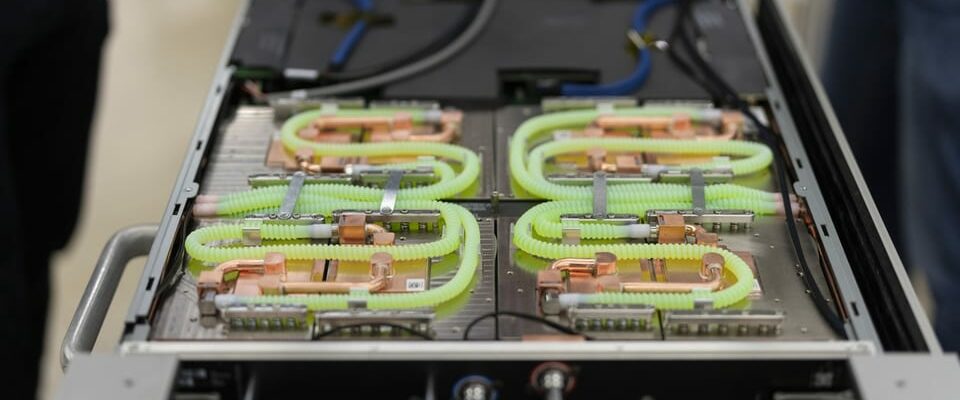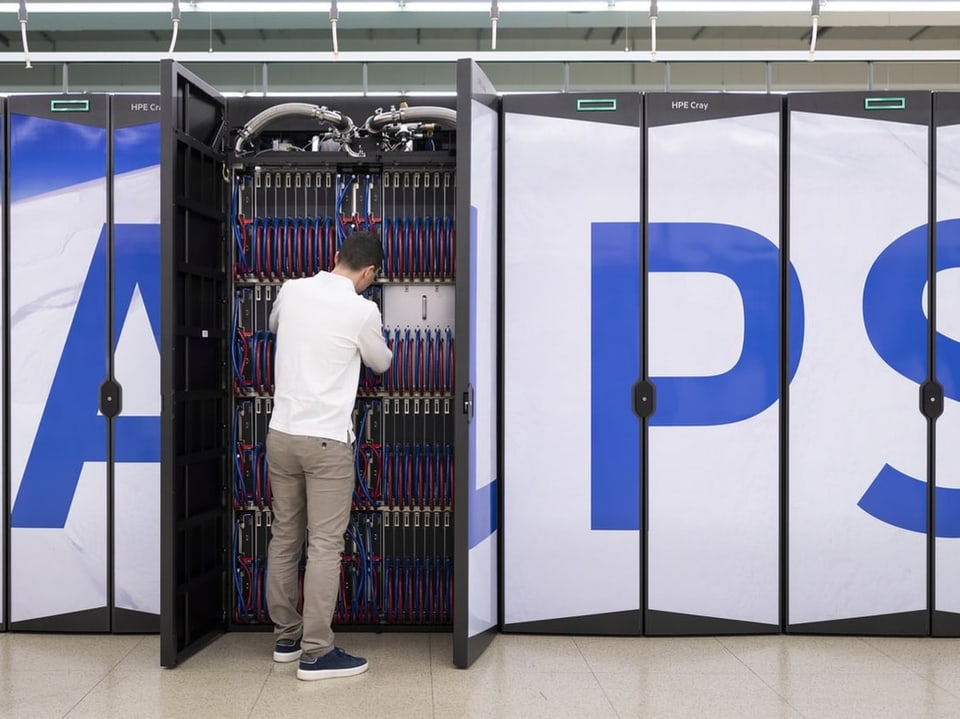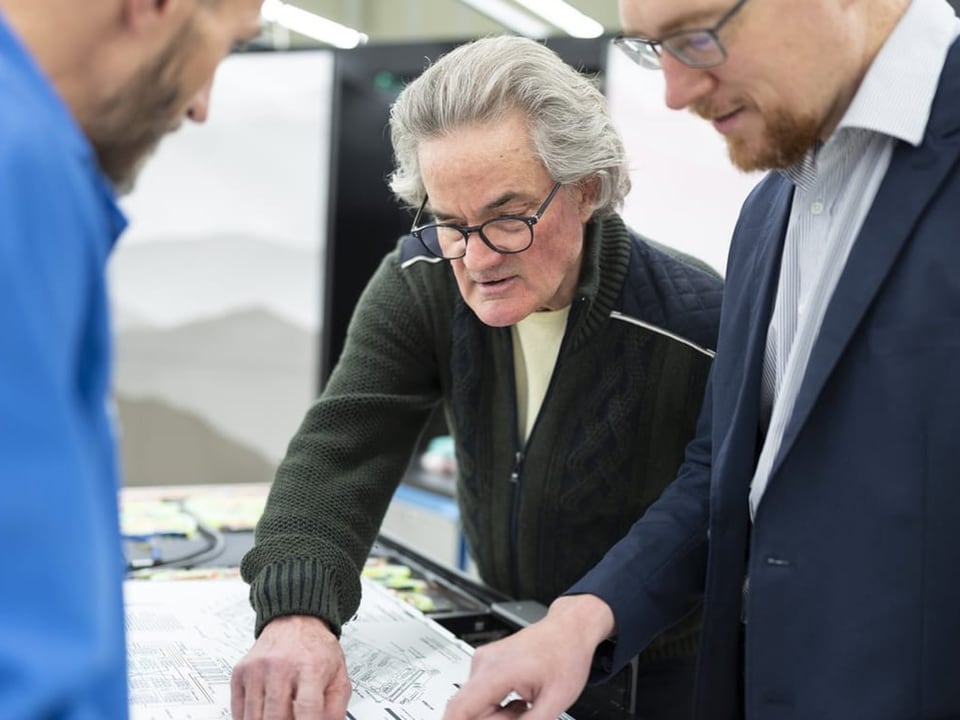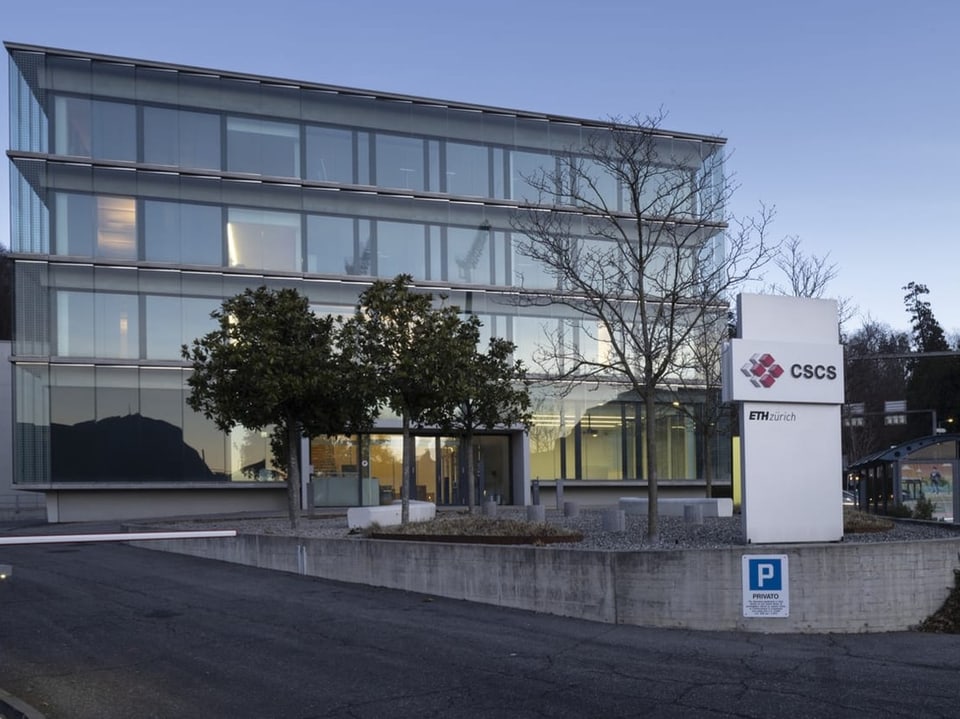Contents
In Ticino, scientists are working on the artificial intelligence of the future with the fastest computer chips in the world.
The CSCS Swiss data center in Lugano recently received valuable mail: new superchips are intended to help science become one of the world’s fastest computers. Computing power that will make artificial intelligence fairer and more comprehensible.
The coup with the super chips
The CSCS was the first public scientific institution to succeed in purchasing the latest generation of graphics chips from Nvidia. Switzerland is therefore the first country where researchers can access the chips called “Grace Hopper”.
Legend:
The CSCS computers will be equipped with thousands of Grace Hopper chips (Image: 01/25/24)
KEYSTONE/Gaetan Bally
The chips installed in Lugano now have a market value of several hundred million francs. The CSCS has been working with Nvidia for more than ten years. Back in 2012, the CSCS introduced a graphics processor-based supercomputer in Europe for the first time.
Now he has succeeded in this coup again. Because it had ordered the latest chips early and helped develop them with the manufacturer, it was delivered first. There is no word in Lugano about how much the supercomputer cost. It is significantly less than the chips would cost on the market today.
ETH wants to get involved in the AI race
“Alps” is the name of the new supercomputer, which is located in an inconspicuous building right next to the football stadium in Lugano. The computer with 10,000 superchips can perform four peta operations per second.
“That’s four thousand times a million times a million arithmetic operations,” enthuses Torsten Hoefler. This is a unique opportunity for Switzerland, says the professor of high-performance computing systems at ETH Zurich: “This will allow us to calculate artificial intelligence at a world-class level and thus move Switzerland to the forefront of AI.”
We have the opportunity to take a leadership role in all AI-relevant aspects of the natural sciences and engineering.
Because supercomputing infrastructure is in short supply worldwide due to the sharp increase in demand for generative artificial intelligence such as ChatGPT, Bing or Google Bard. Tech companies with a lot of money have an advantage.
A counter model to the tech giants
Around 100 professorships would benefit from “Alps,” says the director of the Supercomputing Center Thomas Schulthess: “We now have the chance to take a leading role in all AI-relevant aspects of the natural sciences and engineering.”
No one fully understands how exactly language models like ChatGPT or similar generative applications of artificial intelligence work, says Professor Thorsten Hoefler. In addition to his professorship at ETH, he advises the tech giant Microsoft on the development of the next generation of artificial intelligence. He says: “Tech companies are simply not transparent because the moment they become transparent, they lose their business.”
Open source for more transparency
The new high-performance computer should make it possible for scientists and the public to train a language model like ChatGPT from scratch while respecting copyrights, says Hoefler. The AI initiative from EPFL and ETH wants to publish research results obtained with “Alps”, disclose the data and thus make it understandable for everyone.
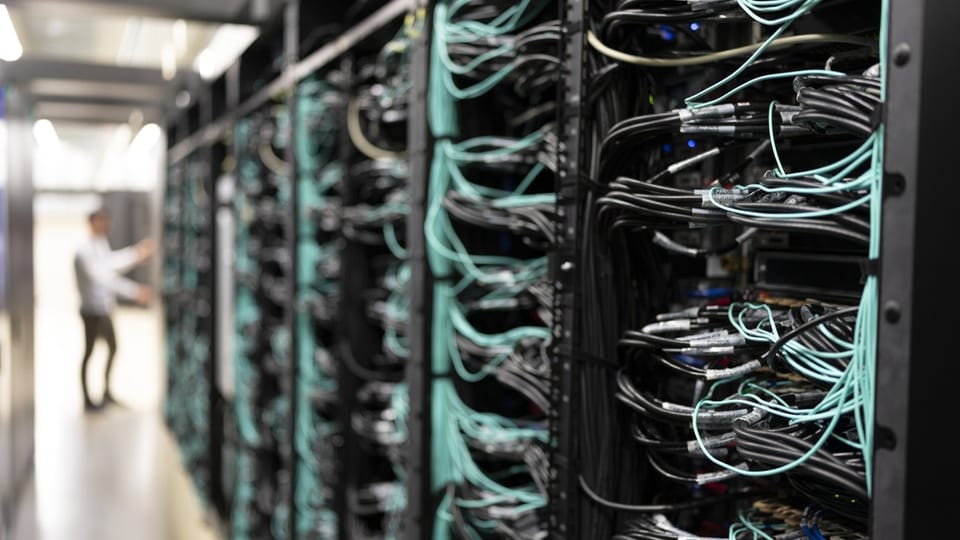
Legend:
KEYSTONE/Gaetan Bally
In Lugano they want to develop an alternative AI to that of the technology companies: This should be transparent, trustworthy and comply with legal and ethical requirements. All of this is intended to make AI language models more democratic.
